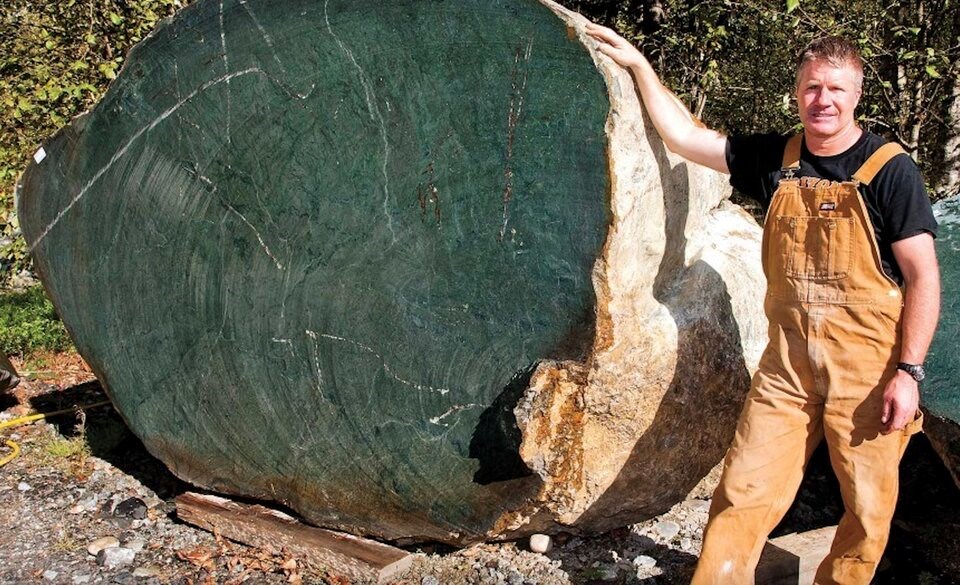The sa国际传媒 government has banned new jade mines in the province’s northwest saying operations are damaging sensitive alpine environments.
The immediate prohibition, carried out through an Environmental Land Use Act, applies to new tenures. Those with current tenures will be able to continue operations for another five years.
As they “wind down operations” they will be forced to adhere to “enhanced reclamation requirement,” said the Ministry of Energy, Mines and Low Carbon Innovation in a statement.
The ministry added that much of the jade mining in sa国际传媒 occurs in locations accessible only by helicopter, a situation that is “creating regulatory challenges for permitting, compliance and enforcement.”
“The cumulative impact of jade mining in northwestern sa国际传媒 is causing harmful effects to sensitive alpine environments…” the statement added.
The ministry said the decision comes after four years of analysis, studies, and collaboration with First Nations and industry, and “is needed to protect these areas from further harm and disturbance.”
Ban comes after years of First Nation opposition
sa国际传媒’s Turnagain region sits within the traditional territory of the Tahltan people, whose central government has benefit agreements with large mining companies in the area. But those benefits haven’t tended to extend to smaller jade mining operations.
In May 2021, the Tahltan Central Government (TCG) called on Bell Media, the Discovery Channel and Omnifilm Entertainment to on the popular reality TV show ‘Jade Fever.’
The political arm of the nation said the show follows jade operations in Tahltan territory and “fails to demonstrate any consideration of impacts to Tahltan rights and title or depicts responsible environmental stewardship.”
TCG also called on the sa国际传媒 government to suspend all jade and gold placer mining operations in its territory — a term often applied to mining loose deposits of minerals in or near a stream bed.
“Abandoned equipment and garbage has been piling up from these operations for decades,” then-TCN president Chad Norman Day, said at the time.
“Jade is also an important resource to Tahltan culture, and yet the province allows others to come into our territory without our consent to extract millions of dollars’ worth of jade every year, with zero compensation and a huge environmental mess that hurts us all as British Columbians.”
A few months later, ‘Jade Fever’ announced it would stop producing episodes.
Nobody from the TCN was available to respond to requests for comment by the time of publication.
Jade miner says prohibition could lead to regulatory 'chaos'
Tony Ritter, owner of Cassiar Jade Contracting Inc., said the news Friday represented a “nail in the coffin” for the placer jade industry in sa国际传媒
“Basically, it completely shuts our company down,” he said.
Beyond miners, he said impacts would ripple through transport and shipping companies, all the way down to manufacturers, to wholesalers and retailers.
“It’s a huge chain of people,” he said. “You talk to the grocer at Dease Lake. It’s affected him.”
Most of his 20 employees have already been laid off in recent years. And government restrictions have meant many of the company’s customers have moved on to Russian and Afghanistan, Ritter said.
He acknowledged that there were some placer jade mining companies in sa国际传媒 that “made quite a mess” of the environment.
“Government failed to enforce their own legislation. That’s on them,” Ritter said. “The whole industry is paying for it.”
What scares him more, he said, was that prohibiting jade placer mining could spark a free-for-all among those miners who are left.
“It’s going to be chaos out there, everybody getting what they can while they can,” Ritter said.
“It’s going to cause a huge regulatory problem.”


